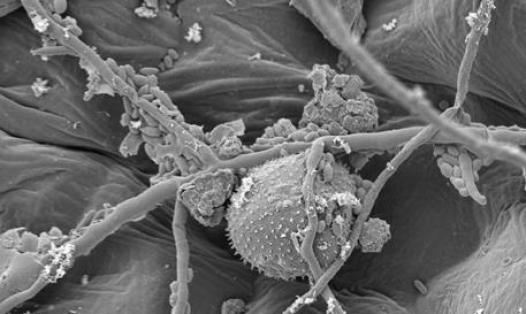
Synthetic community [SynCom] transfer for the...
Cassava is an important food security crop for over 450 million people in Africa and is affected by the cassava brown streak disease (CBSD). We have recently identified PAL1 gene of the phenylpropanoid pathway contributing to resistance to CBSD by the RNA-Seq analysis and transient gene knockdown assays by RNAi. However, five isoforms of PAL genes exist in cassava. In this project, we would like to further investigate the role of all PAL and other candidate genes for virus resistance in cassava by several approaches including further analysis of RNA-Seq data, gene expression and knock down assays.